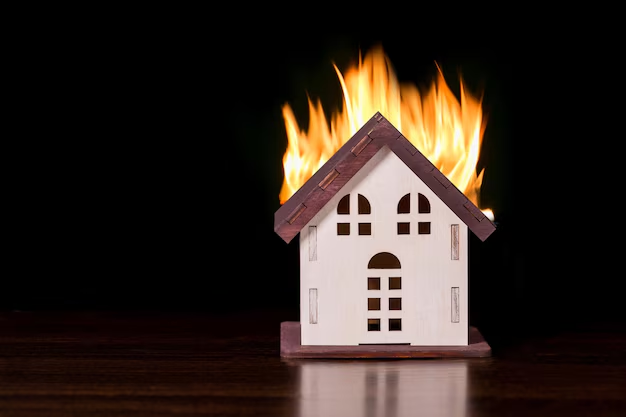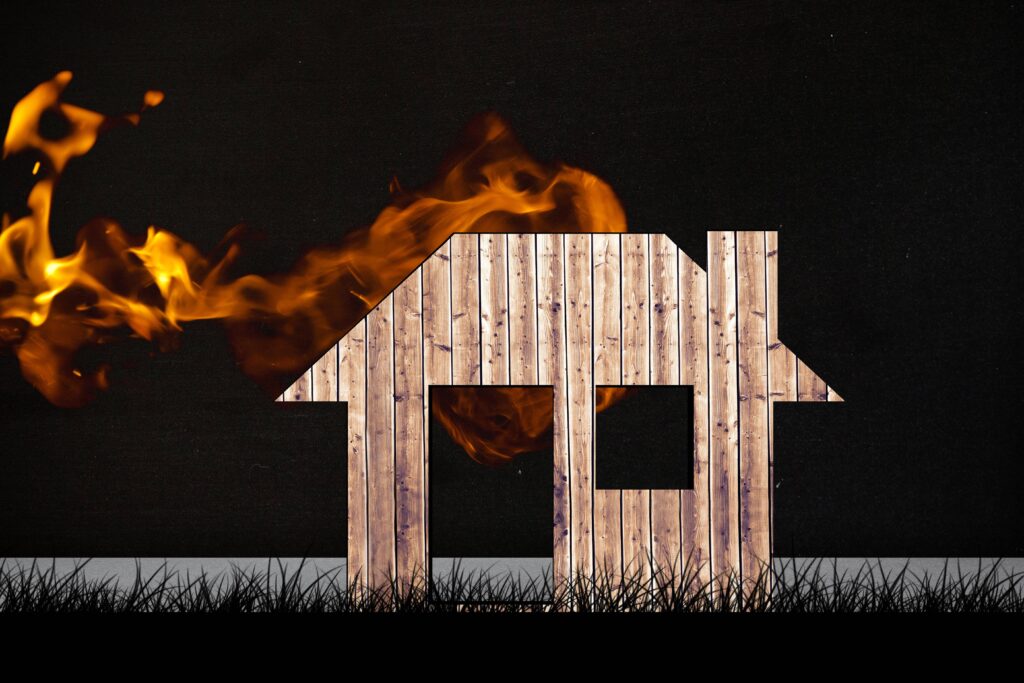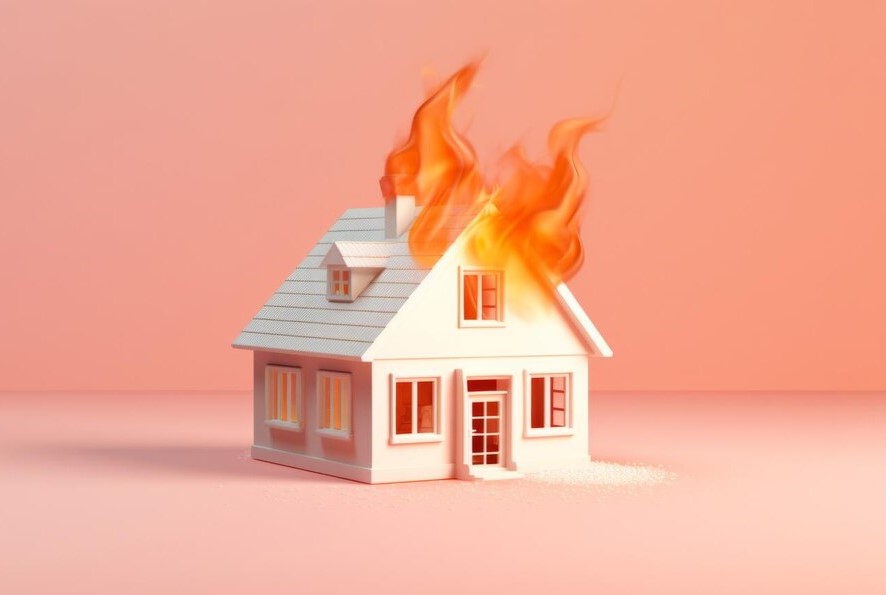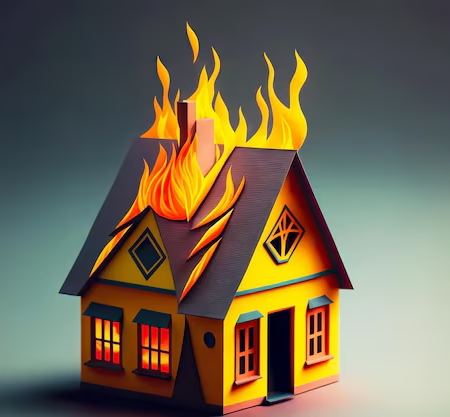
What Brini Learned From Her Fire Insurance Claim Experience?
Learned From Her Fire Insurance Claim Experience
There are days that start out nice, where everything lines up and nothing seems like it can go wrong. Last week, my day started just like that, and then it all changed — last minute. There was a fire at my house and I had no idea what to do after that. Fortunately I had fire home insurance, but making a claim and figuring out life after was not easy. This experience turned into an intensive lesson in disaster response, and highlighted the need to always be prepared. I never thought I would know so much about documenting damages, negotiating with adjusters, and working with my insurance policy. So now, I would like to share my journey here in hopes of helping those who may find themselves in a position like mine.

We will cover what fire home insurance is, the claims process, lessons learned, and tips on how to protect yourself before and after disaster strikes. Maybe you´re working through a fire claim now or maybe you just want to be prepared for the future, this ultimate guide contains tips to help you through your fire claim so that you can make this process easier and less stressful.
Fire Home Insurance Basics
Fire home insurance plays a significant role in ensuring the well-being and financial security of a house, especially in the event of a fire. Fires can arise out of nowhere and wreak havoc, leaving destruction in its path often to property, belongings, and precious memories. Having a robust fire insurance policy is essential to making sure homeowners are not made to bear the terrible financial impact of such an incident alone.
Fire home insurance compensates for damages that are caused by fire and smoke, as well as for water damage caused by the extinguishing of flames. This not only covers physical structure but even your possessions, and costs associated with having to live away from home when it becomes non-liveable. Such as hotel stays, or temporary rents for a new place to stay while repairs are in order. Your policy may cover these expenses.

The details of your policy are important to your understanding of your plan. Providers and plans differ in coverage limits, exclusions, and the claims process. Certain coverage forms exclude coverage for certain types of fires, for example any fire caused intentionally. And understanding if your policy has replacement cost coverage or actual cash value can prove to be substantial when it comes time for reimbursement.
It is only when a loss occurs that most homeowners begin to appreciate the value of fire insurance. If you are proactive and up-to-date, you can guarantee that you will be protected when you need it most.

How To File A Claim For Your Fire Insurance? - Step By Step
The fire that uprooted my life revealed to me this new world that I was not entirely primed for the world of a fire insurance claim. It was a scary process at first but being proactive and organized made it a way more manageable, even empowering experience. So let me walk you through what I did, which I think can be useful if you ever find yourself in a similar situation.
Document Everything
This was an essential step and I can’t emphasize it enough. I snapped pictures and took videos of each and every inch of visible damage with my phone. My house had some charred walls, pieces of furniture that were covered in burnt dust, crushed belongings and also some parts where a lot of water was poured to stop the fire. This form of documentation is your best case when you are bargaining with the insurance adjuster. Making a note of dates and a description of what happened is a good idea as well, along with anything else that could help support your case.
Review Your Policy
I had a strong understanding of my policy prior to the fire though rereading it in the wake of the fire helped me gain clarity on just exactly what was covered. Even though their policies can be complex, learning a few important phrases (like replacement cost vs. actual cash value) was so important. As an example, replacement cost values the cost to replace an item with a new equivalent, whereas actual cash value considers depreciation. I also concentrated on additional living expenses (ALE) coverage, which would apply during the time my home was unlivable.
Get In Touch With Your Insurance Company ASAP
After everyone was safe, and the fire was out, the first call I made was to my insurance company. This is essential because you can only get moving with the procedure as soon as the claim is made early on. I explained what happened quickly in the call and verified follow-ups like having an adjuster come out. Most insurance companies have 24/7 hotlines, so take some time to call them as soon as possible.
Meet With The Adjuster
After this, the insurance company sent out an adjuster to evaluate the damage. This meeting was crucial. I took the time to walk through each impacted area and identify damages that may not be immediately seen, like a smoke stain or a cracked frame. Your adjuster’s report plays a big role in how your claim is handled so be honest and detail-oriented. Speak up if the adjuster is not capturing something in the report that you feel is critical to the claim, —or, feel free to supplement their findings with your documentation.
Keep Track Of Expenses
As I started to deal with the finances of the fire, this became my lifeline step. ALL receipts from temporary residences, meals, and transportation were meticulously saved. Most policies do pay for extra living expenses, but at the cost of detailed recordkeeping. I kept a crib sheet of all the spends I drew down on, which made it easy to submit and track my claim. Being aware of these aspects helped me get fair reimbursement for out of pocket expenses.
I transformed an overwhelming experience to a more manageable process by learning to break things down into bite size pieces. A fire insurance claim is never easy to file, but with preparation, persistence, and attention to detail, you can do it with confidence.
Key Lessons Learned
Before disaster strikes, read your policy thoroughly and ask questions.
I wished I had an exhaustive record of what I owned. Able to save your life in case of emergencies so starting yours today.
Your claim will live or die by the documentation
/receipts.
Of course, there are delays in insurance claims. Reach out periodically to see how things are moving forward.
Consider hiring a public adjuster or reaching out to an expert to ensure your claim is not unfairly denied or undervalued.
Conclusion
Going through a fire and an insurance claim may seem like an impossible mountain to climb, however, think of it as an ace in the hole, you just need to climb out and rebuild yourself! My experience taught me that as long as you read your insurance policy and stay on top of it and do not be afraid to voice your concerns about your treatment; it sounds like a pain in the ass, but it truly is what works. Keep in mind that your safety is the priority just, looking after yourself and your family is more essential than considering how they can assist you with recovering. It is time to make a move, review your insurance, create a detailed list of your belongings, learn about the claims process etc. Taking these preventive steps, however, could prove to be the difference if you ever get into a similar fix. It’s things like these that will be our tests (or, challenges) but it is also a reminder for us to be prepared for the unexpected, you know, as life works in mysterious ways.

Frequently Asked Questions (FAQs) About Fire Home Insurance
Generally, they cover the home structure, personal property, and loss of use. However, coverage varies.
Yes, accidental fires are usually covered unless the cause of the fire was due to negligence or an excluded peril.
That means having things like ownership records, a home inventory, photos of damage, and receipts for expenses.
Claims can take weeks or months to process, but this is dependent on the extent of the damage Claims can take weeks or months to process, but this is dependent on the extent of the damage.
Judiciously, in case the settlement doesn’t suffice your needs, seek to negotiate or hire a public adjuster.
Police do cover smoke damage to your walls, furniture and other items.
Yes, if insured are not able to live in their own homes, they should be compensated for additional living expenses (which is where hotel stays come in).

